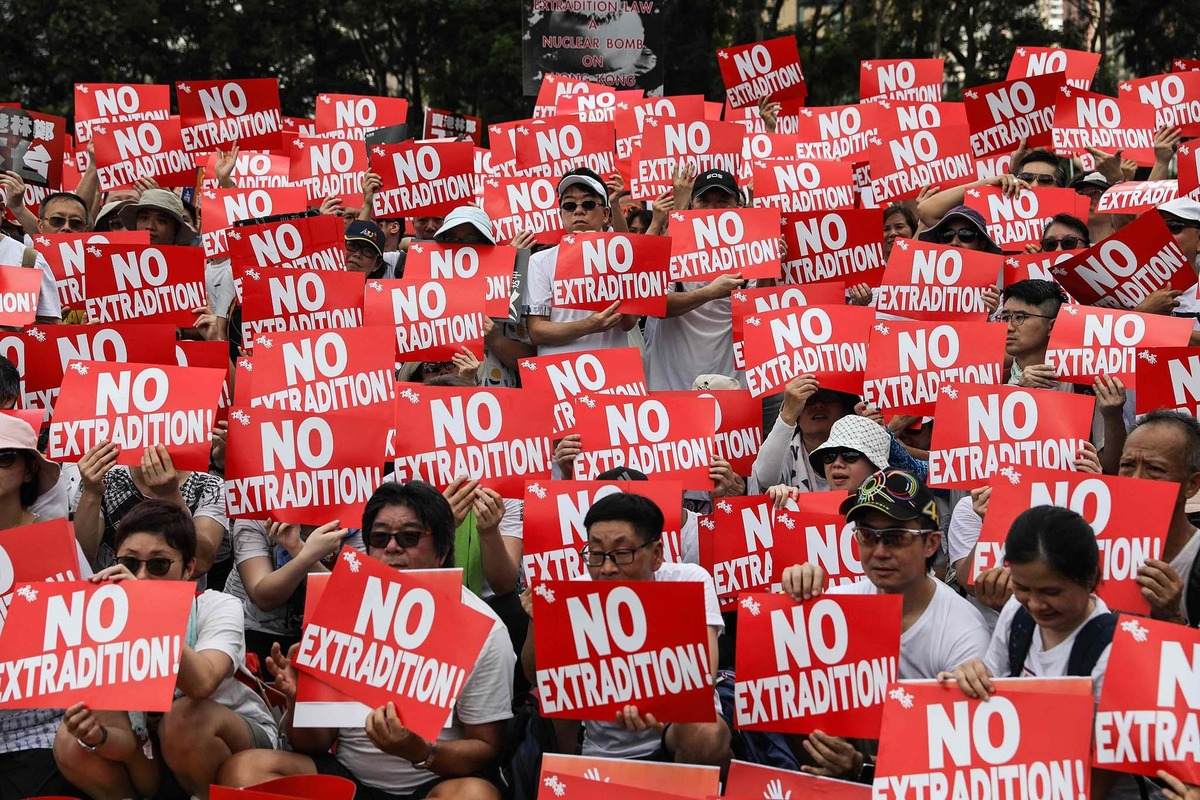Passion for Hong Kong: Experts predict serious financial risks

In a special administrative district of Hong Kong, the police dispersed protesters who opposed the adoption of extradition law. According to local media, 72 people were injured, two are in critical condition. Law enforcement agencies wounded 21 police officers, nine of them were hospitalized.
Many political experts have noted that recent events have been the most significant since 1997 when Hong Kong has become a special region after the 100-year lease of Britain. Even though the police dispersed the speeches, the Hong Kong authorities postponed further consideration of this issue.
What happened?
A precedent for these events was the history of one couple, where a 19-year-old resident of Hong Kong killed his 20-year-old pregnant girlfriend while resting in Thailand. After the local police went to the murderer's spot, he managed to escape to Hong Kong, which has no extradition law with Thailand.
After this, the Hong Kong authorities spoke with the idea of creating a base for extradition, but not to Hong Kong, but China. Also, the current government, headed by pro-Chinese officials, supported this idea, and a draft law was subsequently introduced for consideration by the local legislature.
Activists who opposed such actions by the authorities began to gather in the city centre and arranged a campaign of disobedience. In their view, the law allows Hong Kong authorities to transfer individuals who are subject to extradition may be sent to Macao or even to China, which for many is tantamount to torture, interrogation and death.
For the first time since 2014 (since the so-called "Revolution of umbrellas"), protest rallies swept the whole city. In spite of the peaceful protest of the action, the crackdown by the police turned into a cleanup of the territory where law enforcement officials began to use tear gas and rubber bullets.
After the dispersal of the demonstrators, because of the severe resonance on the part of the world community, the Hong Kong authorities suspended the consideration of the draft law on extradition. However, experts are confident that, when revising this draft law in the second reading, protest actions and protesters will burst again into the streets of the city.
What's next?
Financial markets in Hong Kong have siphoned under the blows of the press, opposition politicians and international investors. Even on Wall Street, some financial analysts noticed a tendency to sell a part of minority stakes in companies and Hong Kong banks. Reputation risks, according to the agency Fitch, have already reached the "yellow mark", which means - there is a risk of investing in a jurisdiction with high financial losses.
The fact that the local government continues to curtail democratic institutions and freedoms is noted by many human rights organizations in Europe and Asia. And this does not add the rankings to Hong Kong itself. At the same time, in China, the press is silent on details and the problem of strained relations between Hong Kong SAR (or rather, democratically-minded population) and Peking, where they try to influence all processes politically. However, since the United States, China and Hong Kong, and even the EU with Britain, have been involved, this suggests that the problem will be dampened by other, less dangerous decisions of the local government.
The financiers emphasize that political protest actions may last for several months, and the attractiveness of the business will be very low. Besides, the severe constitutional crisis in Hong Kong is also of concern to Beijing from a financial point of view, because the SRA affects investors' flows to China. Many believe that the policy of "one country - two systems" does not get used to Hong Kong, which is very annoying politicians of the People's Republic of China who want to introduce their rules of the game. But because of the high percentage of protesters, this idea will cost both the economy and the politicians of both regions extremely costly.
Now there is no other option for Hong Kong as the path of SAD in the PRC as a broad autonomy. All four attempts (1997, 2008, 2014, and 2019) simply failed: the power solution of the question only takes away the danger from the problems; but the fact that the policy of "twisting nuts" in Chinese begins to cause alienation and rejection of the local population, the curtailment of rights and freedoms, can significantly affect the investment climate of the country. The answer to the question "what to do next," seems to be neither Beijing nor the local authorities. It means that the probability of new bloody protests remains incredibly high.





























































